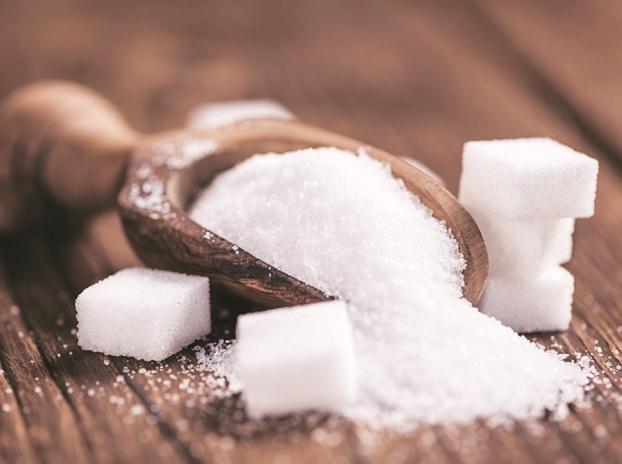Há mais de 10 anos que a Gino Biotech é um dos principais fornecedores de hidrocolóides alimentares. Com a nossa variedade de gomas e estabilizadores à base de plantas, podemos criar soluções hidrocolóides à medida, perfeitamente adaptadas às necessidades dos nossos clientes. LER MAIS
Como é que a sacarose afecta as propriedades de gelificação do ágar-ágar?
Facebook
Twitter
LinkedIn

【Resumo】
O ágar é insolúvel em água fria e solúvel em água quente. Trata-se de um hidrocolóide extraído de algas como o Geldium e a Gracilaria.
A adição de diferentes concentrações de sacarose pode aumentar a força de gel do ágar-ágar, e o nível ótimo de utilização da sacarose é de 1,5%~16,0%. Se for superior ou inferior, a força do gel diminuirá.
Agar Agar é um hidrocolóide obtido por extração de algas como Geldium e Gracilaria de Pré-tratamento com solução alcalina, lavagem com água, ebulição com uma solução fracamente ácida, filtragem para remover impurezas, solidificação, desidratação, secagem e moagem.
O ágar-ágar é insolúvel em água fria e solúvel em água quente. Tem uma importância industrial única. Pode formar um gel bastante estável mesmo a uma temperatura tão baixa como 1%. É uma matéria-prima necessária para a indústria alimentar, a indústria química e a investigação médica. Se for utilizado na produção alimentar, pode não só alterar a textura dos alimentos, mas também melhorar a sua qualidade. Além disso, o ágar-ágar pode também ser utilizado no fabrico de laxantes ou de outros produtos que reduzem o apetite.
MAS, como é que a sacarose afecta as propriedades gelificantes do ágar-ágar?
SacaroseA sacarose é um dissacárido formado pela condensação e desidratação de um grupo hidroxilo hemiacetal da glucose e de um grupo hidroxilo hemiacetal da frutose. A sacarose é doce, inodora, solúvel em água e glicerina e ligeiramente solúvel em álcool.
Agora, vamos manter a concentração de Agar Agar em 1,5% e testar o efeito na força do gel adicionando diferentes concentrações de sacarose.
A adição de sacarose tem um efeito significativo no aumento da força de gel do ágar-ágar. Quando adicionado em pequena quantidade (menos de 1,5%), a força do gel do ágar é ligeiramente diminuída. ↓
No entanto, na faixa de 1,5% a 16,0%, a força do gel aumentou rapidamente com o aumento da concentração de sacarose, e atingiu o valor máximo, e a força aumentou em cerca de 37%. ↑
À medida que a concentração de sacarose continua a aumentar, a força de gel do Agar Agar diminui gradualmente. ↓
Então e o efeito do desempenho da retenção de água?
É muito interessante o facto de a capacidade de retenção de água do Agar Agar ter melhorado significativamente.
E pode também perguntar-se o que acontece com o efeito da viscosidade e da transparência?
No intervalo de concentração de 0~10%, a viscoelasticidade mantém-se basicamente inalterada e a transparência tem uma tendência crescente.
PORQUÊ?
A adição de uma pequena quantidade de moléculas de sacarose impede a reticulação das moléculas de ágar-ágar, resultando num enfraquecimento da estrutura da rede, pelo que a resistência do gel de ágar-ágar é ligeiramente reduzida;
Com o aumento da concentração de sacarose, a hidratação da própria molécula de sacarose é significativamente aumentada, de modo que a água livre no gel é reduzida, e a rede de gel é firmemente ligada, de modo que a força do gel de Agar Agar é aumentada;
Quando a concentração de sacarose continua a aumentar, o gel de ágar-ágar é afetado pela molécula de sacarose não gelificante e a força do gel diminui novamente.
Sobre a Gino Biotech

Somos uma empresa biotecnológica especializada na investigação, desenvolvimento e comercialização de aditivos alimentares inovadores e tecnológicos hidrocolóides Ágar-ágar, Carragenina e Soluções de estabilizadores feitas à medida.
Com o know-how alargado e a experiência na investigação, aplicação e utilização de hidrocolóides, podemos fornecer um balcão único soluções personalizadas perfeitamente adaptados às necessidades dos nossos clientes.
O nosso produtos cobrem as necessidades dos sectores da carne, dos lacticínios, da panificação, da confeitaria e de outros sectores industriais.
Contacte o nosso representante de vendas para mais informações.





